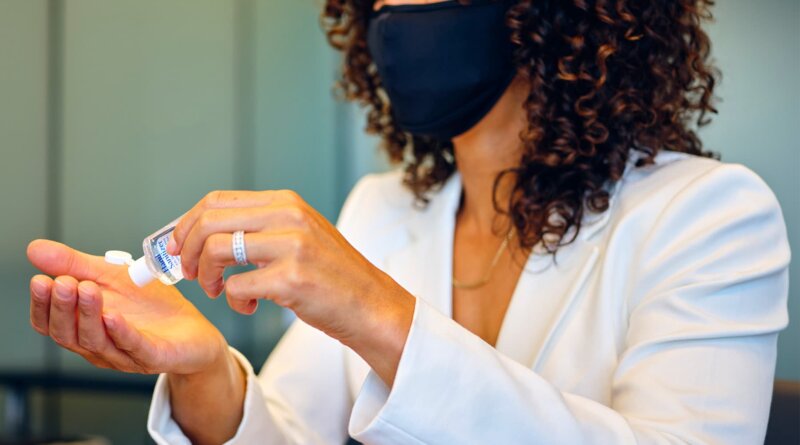How the Pandemic Changed You (and You May Not Even Know It)
Oct. 27, 2022 – The pandemic changed a lot. The way we work, educate our kids, and visit the doctor. The job market, the housing market, and entire industries. Our average life expectancy fell by nearly 3 years.
But the pandemic has also changed something else: You.
That’s not just a guess. Scientists have been putting out papers documenting the many ways you – and all of us – have changed, from habits to health. The latest such study suggests that our very personalities have changed.
Researchers from Florida State University and other institutions compared data pre-pandemic versus later and found declines in four traits: extroversion, openness, agreeableness, and conscientiousness. The changes were about “one-tenth of a standard deviation,” roughly the level of personality change you’d expect to see over a decade – not 2 years. A fifth trait, neuroticism, also increased in young adults.
In some ways, that’s the opposite of what should happen as we grow and mature, explains study author Angelina Sutin, PhD, a professor of behavioral sciences and social medicine at Florida State University College of Medicine. The paper calls it “disrupted maturity.” Normally, neuroticism goes down, and agreeableness and conscientiousness go up.
“In young adults, we found the exact opposite pattern,” Sutin says. Middle-aged adults also saw a decline in agreeableness and conscientiousness, though the oldest adults saw no significant changes.
“Having a worldwide pandemic was a stressor that affected everyone in some way,” Sutin says. “There has not been an event like that in modern time, in modern psychology, that we could look at that disrupted all of society.”
Natural disasters are disruptive and stressful but tend not to affect the entire population. They also don’t last as long.
“The pandemic has been this ongoing threat,” Sutin says. “It’s hard to have gone through this experience and not been changed in some way.”
Scientists have seized the opportunity to study all kinds of things: the pandemic’s impact on our blood pressure, our microbiomes, our eyesight, our mental health. Many more long-term changes may be revealed with time.
Are they permanent? Perhaps – but perhaps not. We are not without agency; if you’re feeling more anxious and stressed (signs of neuroticism), you can seek help and learn ways to manage that. If you’re concerned about conscientiousness, practice those skills: Stick to a schedule, follow through on commitments.
“All those things that make conscientious people conscientious,” Sutin says.
On the other hand, some changes – like washing your hands more and reevaluating what matters – may be positive. And those you can choose to keep.
It starts with taking a moment to reflect and recognize what changes are helpful or harmful, which you’d like to carry forward, and which you’ll leave behind.
So, how have we changed since the pandemic? Have a look.
Our Blood Pressure Went Up
A study of half a million U.S. adults found systolic blood pressure (the top number in your blood pressure measurement) jumped by about 2 millimeters of mercury from April 2020 to December 2020, while diastolic pressure (the bottom number) went up, too. (This after holding steady in 2019 and the first 3 months of 2020.)
Stress activates the sympathetic nervous system, raising blood pressure, says study author Luke Laffin, MD, of the Cleveland Clinic’s Center for Blood Pressure Disorders. It also inspires unhealthy behaviors, like scarfing down junk food, drinking alcohol, and sleeping less.
Even a small rise in blood pressure can increase heart attack and stroke risk. But you can help reverse the damage by exercising, cutting back on salt and saturated fat, making sleep a priority, and taking blood pressure medications as prescribed. Another useful exercise: Take a long look at how you react to stress triggers, no matter if they come from family, TV, or social media. Tracking your blood pressure at home can help too, Laffin says. Find validated monitors at ValidateBP.org.
We Need More Space
Remember Seinfeld’s “close talker” (Judge Reinhold) who gets uncomfortably I-can-feel-your-breath close? We all know that visceral urge to step back, and now we may be stepping back even farther.
Taking advantage of a pre-pandemic study on personal space, researchers at Massachusetts General Hospital recruited the same people for a new study after the pandemic began. They found that space needs increased by 45%, from 2 to 3 feet to 3 to 4 feet, on average.
The clever part of this study is that they used both real people and avatars to test the results.
“Even though avatars are not real, we do not want an avatar in our personal space,” says study author Daphne Holt, MD, a psychiatrist at Massachusetts General Hospital. You can’t catch COVID from an avatar. Yet people still needed more space in a virtual setting, suggesting the brain systems regulating personal space may have been altered.
No need to force this one. You’ll readjust at your own pace, Holt says.
“These behaviors are fairly automatic and sensitive to change, and thus should quickly adapt again to the new normal.”
We’ve Become Germ-Fighting Ninjas – and That May Be Bad for Our Health
For many of us, the pandemic was a crash course on virology and immunology. We now know what a spike protein is, the difference between an N95 and a regular-old face mask, the virtues of alcohol-based hand sanitizer, and how far and fast virus-carrying droplets can travel.
But we may have fended off good germs too, meaning your microbiome may have taken a hit.
“We have a tension in our society between hygiene and healthy [microbe] exposure,” says Brett Finlay, PhD, a professor of microbiology and immunology at the University of British Columbia and author of Let Them Eat Dirt.
That goes back well before the pandemic, to when scientists discovered about a century ago that germs cause infection. That’s when we broke out the disinfectant, sterilizing our world and killing healthy microbes in the process.
“When we realized this and how important the microbiome is to our health, we started pushing back,” says Finlay. “Then COVID came along, and we went back to being hyper hygienic, which will set us back considerably.”
Healthy microbes help protect against disease. And a BMJ study even found that the gut microbiome may influence COVID severity.
Strike a balance, Finlay recommends. Keep handwashing, but eat more fiber, fermented foods, and probiotics, and cut back on sugar, flour, and red meat. Also exercise, manage stress, and get outside. Microbes in the environment can be ingested and become part of your gut community, where they can help fuel healthy gut cells, he says. A pet is another good way to expose yourself to different microbes.
Our Vision Got Blurrier
The pandemic, by virtue of trapping us indoors and keeping us close to screens, may have sped up a rise in nearsightedness, or myopia, especially among young children. That’s when you can see things up close but struggle to view objects far away. The fix is simple: glasses. But if myopia worsens too quickly, it can increase the risk of retinal detachment and glaucoma, conditions that in turn can lead to permanent blindness.
Children are especially at risk.
“The younger the person, the more influence near activity has on progression of myopia,” says Howard Krauss, MD, a neuro-ophthalmologist at Providence Saint John’s Health Center in Santa Monica, CA. “But even the young adult may induce myopia with prolonged near work,” as may be the case among law students and medical students.
You can help protect yourself (or your child) against myopia progression by getting outside, Krauss says. Exposure to bright light triggers the release of dopamine, which may prevent the eye from elongating (the basis of myopia). Maximize your outdoor time as you can, aiming for at least 2 hours a day.
Our Teeth Hurt
Some 70% of dentists saw more teeth grinding, or bruxism, among patients. Dr. Google noticed too: Searches for “bruxism,” “teeth grinding,” and “teeth clenching” spiked between May and October 2020.
Grinding is linked to stress, and some research suggests the tensing-and-relaxing motion (like chewing gum) may be a subconscious stress reducer.
If it gets bad enough, grinding can cause tooth fractures or loss of teeth, says Robert DiPilla, DDS. If you’re concerned, see your dentist. A fitted mouth guard may solve the problem.
We’re More Anxious (and More Aware of That, Too)
Rates of depression and anxiety soared during the pandemic. The reason? Take your pick: unprecedented stress, frustration, isolation, uncertainty, grief over losing loved ones. Some research points to “emotional contagion.” That’s when you see other anxious people, so you start to feel anxious too, an effect that can run rampant on social media.
But guess what? We’ve noticed. A recent survey from CNN and the Kaiser Family Foundation found that 9 out of 10 adults believe there’s a mental health crisis in the U.S. today. We’re talking more about mental health now, says Ariana Mufson, a social worker in Newton Centre, MA, and we may be more aware of it than ever, as evidenced by the rise in demand for mental health services.
“People I hadn’t seen in years came back to my practice,” says Mufson, “and I received daily referrals to the point where I had to keep a long waitlist.”
Paying more attention to your mental health is a positive change. So put down the phone and keep up the self-care. Our mental health needs “exercise” just as our bodies do, Mufson says.
We Stopped Catching Colds
It’s not true that getting infections boosts general immunity. In fact, infection can cause inflammation and may trigger autoimmune disease. One study found that prior infection with a common cold coronavirus may have increased the risk of severe illness from COVID.
“One of the things we learned from the pandemic was how effective masking is at preventing all sorts of illnesses,” says Meghan May, PhD, a professor of microbiology and infectious disease at the University of New England College of Medicine. Take the unusually low 2020-2021 flu season, she says.
“We can apply that knowledge forward to help curtail diseases other than COVID.”
Keep washing your hands, using sanitizer, and minding your personal space, May recommends. And continue to eat outside at restaurants if you can, even during the chilly months of cold and flu season. Heat lamps, fire pits, and portable stoves have become common at many places, she notes.
We Reevaluated What Matters
Amid the disruption and isolation, the pandemic may have helped us focus on what’s most important. Engagements, career shifts, and moves all spiked. Job loss and furloughs encouraged many to reconsider their careers, prompting an unprecedented high in U.S. resignations. Inflation forced some to rethink their spending – a Capital One survey found 58% of those surveyed have completely changed how they think about money due to the pandemic.
This is one change you want to make permanent, so keep fostering that compassionate and curious inner voice, says Mufson.
“Ask yourself, ‘Is this job making me happy? Is it giving me the work-life balance I want? Do I have enough free time to see family and friends?’” If not, figure out the steps needed to get where you want to be.




